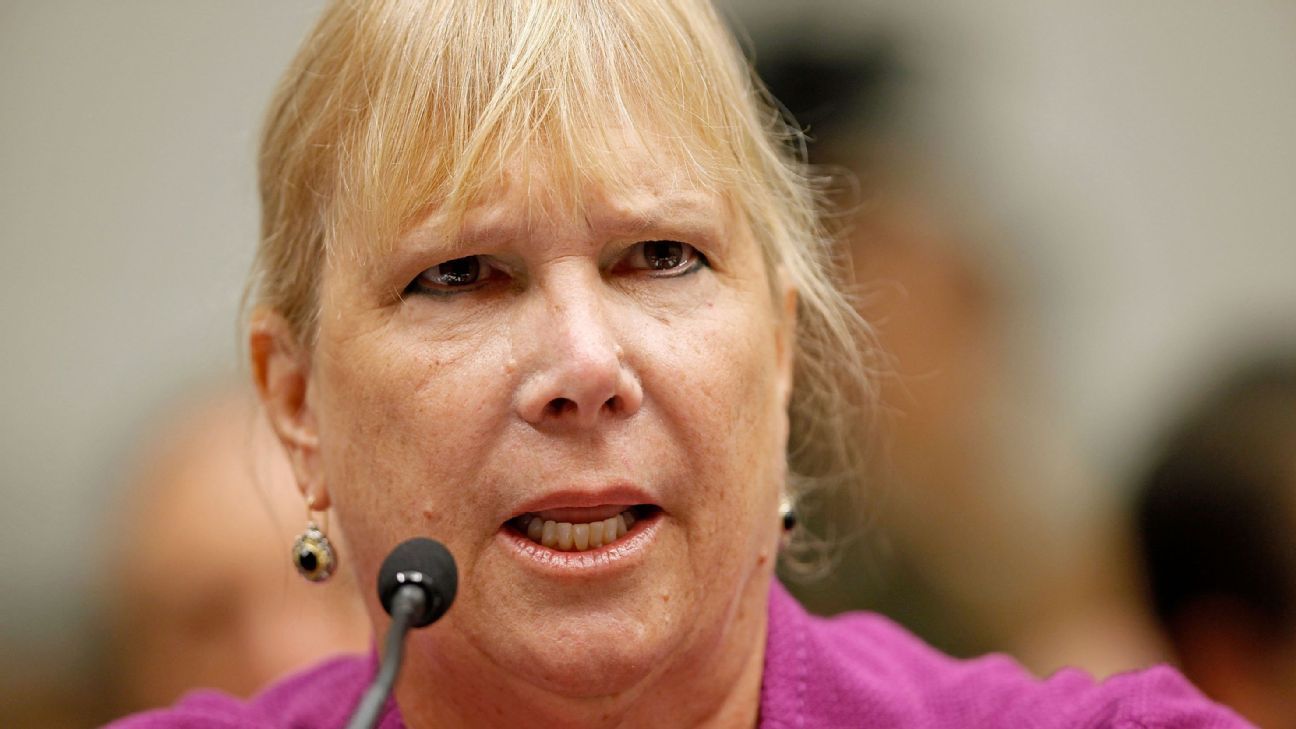TAMPA, Fla. — Former Tampa Bay Buccaneers team president and senior executive Gay Culverhouse, who devoted her life to helping former NFL players dealing with health issues including chronic traumatic encephalopathy (CTE), has died at the age of 73, a family spokesperson told the New York Times.
Culverhouse, the daughter of late Buccaneers owner Hugh Culverhouse, died Wednesday at her home in Fernandina Beach, Florida. Culverhouse suffered from complications from myelofibrosis, a form of chronic leukemia inhibiting the production of red blood cells. She had battled the condition, which left her severely anemic, since 2003.
She was originally given just five years to live and survived 17 years with the illness.
“We are saddened to hear of the passing of Gay Culverhouse earlier this week,” Buccaneers owner and co-chairman Bryan Glazer said in a statement. “During her family’s ownership of the Buccaneers, Gay was a leading figure in and around the Tampa Bay community who was defined by her compassion for helping others. Her tireless work as an advocate for retired NFL players is also an important part of her personal legacy. We send our heartfelt condolences to her children, Leigh and Chris, and the entire Culverhouse family.”
Culverhouse joined the Buccaneers in 1986, years after her father was awarded the expansion Buccaneers in 1974. Before joining the Buccaneers, she worked as an instructor at the University of South Florida College of Medicine from 1982-1986, specializing in child psychiatry after earning her doctorate from Columbia University.
She remained with the organization until 1994, resurfacing 15 years later to serve as an advocate for retired players, testifying in a House Judiciary hearing on head injuries among NFL players in 2009.
“One of the things you, as a committee, need to understand very clearly is the fact that the team doctor is hired by the coach and paid by the front office,” Culverhouse said. “This team doctor is not a medical advocate for the players. This team doctor’s role is to get that player back on the field, even if that means injecting the player on the field.”
“My men have headaches that never stop. They cannot remember where they are going or what they want to say without writing it down. Some are on government welfare. Some are addicted to pain medication. Some are dead.”
She called for mandatory benching of players suffering from concussions and for independent neurologists not affiliated with teams to be on the field for every game evaluating players. Thanks to her efforts, the league implemented this policy in 2013, which includes fines and even forfeiture of draft picks should teams fail to follow concussion guidelines.
It was the death of former Buccaneers lineman Tom McHale of an accidental drug overdose in 2008 that prompted Culverhouse to take up the cause of helping former players. McHale was just 45, but his brain, researchers found, was marked by signs of the neurological disease CTE.
“I became very concerned and started looking more thoroughly into concussions,” she said. “And I thought, ‘I’ve got to do something. I can’t let this fester.’ “
She formed the nonprofit Gay Culverhouse Players’ Outreach Program, paying for medical exams for dozens of retired players while assisting them with the necessary paperwork to receive medical benefits.
When asked why she chose to adopt the cause of retired NFL players, Culverhouse said in 2010, “Because it needs to be done. If not me, then who?”
Culverhouse didn’t shy away from her father’s unpopular and often controversial decisions, which included a low-ball salary offer to then-Buccaneers quarterback Doug Williams, who would later become Super Bowl MVP as a member of the Washington Redskins.
“My father has to answer on his own merit,” Culverhouse said to ESPN. “No one can make up for someone else’s mistakes.”
Nor did she shy away from criticism of the league, its owners, its doctors and its culture when player-safety came second, serving as an important moral compass at a time when it was desperately needed.
“This game has to change. ‘Game’ is a misnomer. This business has to change. My grandson means too much to me to sit on the sidelines and not mandate change,” Culverhouse said of her grandson, who was at the time, 8. “I have seen his future in the bodies and eyes of my former players. I know what is happening in the locker room. Please change football before my grandson is damaged.”
“One of my former players referred to me as a ‘rebel with a cause.’ By breaking ranks with the National Football League, I have become that rebel. My cause is the health and well-being of all football players whether they are 8-year-olds or 22-year-olds. Safety must come first. Business must come second.”
